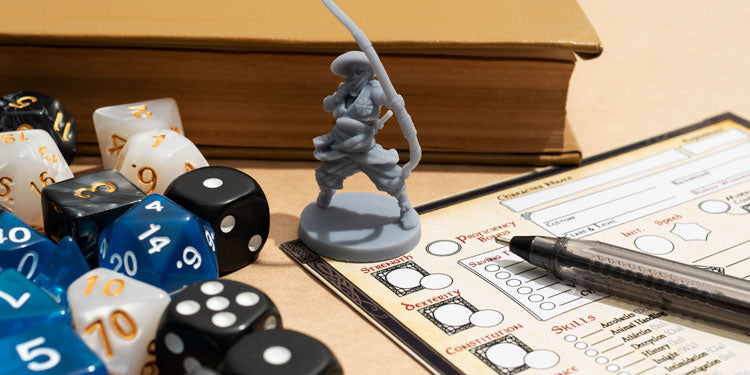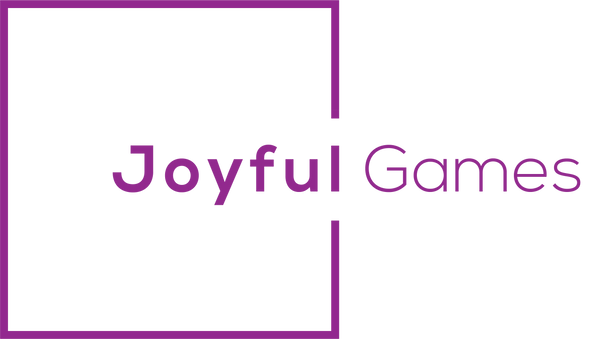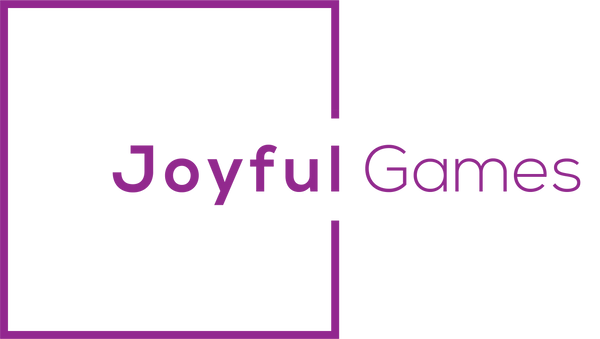Have you ever considered that the board game collecting dust on your shelf could be a hidden gem in your mental health toolkit? Imagine transforming game night from a simple pastime into a powerful avenue for mental well-being.
This isn't just a playful suggestion; it's a well-documented fact. Welcome to the intriguing world of board game therapy, where strategic moves and cooperative play offer more than just entertainment—they provide a unique pathway to mental health and mindfulness.
Related Articles
- The Psychology Behind Board Gaming: Why We Love to Play
- Why Competitive Board Games Can Be Good for Making Friends
- How Playing Strategy Board and Card Games Boost Your Wellbeing

The Connection Between Board Games and Mental Health
Many great board and card games are far from being mere pastimes, serve as intricate tools for mental wellness, blending cognitive challenges, emotional engagement, and social interaction into a cohesive therapeutic experience. The strategic and problem-solving elements inherent in these games stimulate the brain, enhancing cognitive functions and potentially slowing cognitive decline by forging new neural pathways.
This cognitive engagement, coupled with the emotional highs and lows of gameplay, offers a unique form of stress relief and emotional regulation, allowing players to experience and manage a spectrum of feelings within a safe, controlled environment.
Moreover, the social aspect of board games combats modern-day epidemics of loneliness and isolation by fostering meaningful connections and interactions.
These games create a space for face-to-face engagement and collaboration and strengthen social bonds, contributing significantly to overall mental health. Through their unique combination of fun, challenge, and connectivity, board games emerge as powerful allies in the quest for mental wellness, offering a playful yet profound way to enhance cognitive abilities, navigate emotions, and cultivate social connections.
Why Board Games Are Good for the Mind
Diving into a board game is like entering a workout session for your brain, but way more fun. Picture this: every decision you make, every strategy you plan, and every problem you solve while playing isn't just about trying to win; it's actually giving your brain a serious stretch and flex.
It's pretty amazing how these games, on the surface all about fun and camaraderie, secretly double as a gym for your mind, sharpening your thinking skills and making you quicker on your mental feet. And the benefits spill over into real life, making you better at handling everyday challenges.
But there's more to it than just brain gains. Board games are like a timeout from the non-stop buzz of life, a little oasis of calm where the only stress is whether you'll beat your friends this time. They wrap you in this bubble of focused fun and laughter, making all the day's stressors disappear for a while. And let's not forget the magic of sitting down with people, sharing in the ups and downs of the game, and just enjoying each other's company. This mix of mental workouts and heartwarming social connections makes board games so special. They're not just games but a recipe for a happier, sharper you.
Strategic Games: A Mental Workout
Strategy games stand at the forefront of cognitive enhancement through leisure, demanding a level of foresight, adaptability, and tactical acumen that directly translates into mental fortitude. These games are not just about entertainment; they're a sophisticated exercise in critical thinking and strategic planning, engaging players in a mental dance of prediction, adaptation, and decision-making.
By navigating the intricate landscapes of games like "Catan" and "Ticket to Ride," players delve into resource management and route planning, skills that echo the complexities of real-world problem-solving.
The resurgence of board gaming culture has brought many new and popular titles that further enrich the strategic gaming experience. "Terraforming Mars" tasks players with planetary development, mixing scientific strategy and resource allocation to engage and expand the player's planning and organizational skills.
Related article: Terraforming Mars Review.
Moreover, "Scythe," is a board game set in an alternate history of the 1920s, is another heavyweight in the strategic gaming world. It balances warfare, resource management, and economic strategy, compelling players to anticipate competitors' moves and plan multiple steps. This level of strategic depth not only sharpens cognitive abilities but also enhances players' ability to think critically about both the immediate and future impacts of their decisions.
Engaging with these strategy games offers a dynamic way to bolster cognitive functions, providing a playful yet challenging arena for improving mental agility, problem-solving capabilities, and strategic foresight.
As players immerse themselves in these games' thematic depths and strategic complexities, they inadvertently participate in cognitive training that is as enjoyable as it is beneficial, proving that strategy games are indeed a mental workout worth investing in.
Cooperative Games: Building Social Bonds and Emotional Intelligence
Cooperative board games have surged in popularity for their unique ability to weave social bonding and emotional intelligence development into the fabric of gameplay. Unlike their competitive counterparts, these games require players to unite their efforts towards a common objective, fostering an environment where communication, collaboration, and mutual support are key to success. This cooperative dynamic is a powerful tool for enhancing interpersonal skills and emotional understanding among players.
"Pandemic," a game where players team up as a group of disease-fighting specialists aiming to save the world from outbreaks, is a prime example of how cooperative games can simulate high-stakes problem-solving while promoting teamwork. Players must strategize together, share resources, and plan their moves in concert, which can lead to improved real-world collaboration skills and a greater sense of collective achievement.
"Forbidden Island" offers another compelling cooperative experience, with players working as a team to recover treasures from a sinking island. The game emphasizes the importance of joint decision-making and flexibility, encouraging players to adapt to new strategies as the game environment changes. This dynamic reinforces the value of listening and adapting to others' perspectives, crucial components of emotional intelligence.
Newer titles in the cooperative genre continue to push the envelope in terms of complexity and thematic depth.
"Spirit Island," where players become different spirits of nature working together to repel invaders from their island, offers a rich narrative experience that requires deep strategic cooperation and understanding of each player's unique abilities and roles. This game, among others like "Gloomhaven: Jaws of the Lion," a streamlined version of the original "Gloomhaven" game, offers layered cooperative gameplay that enhances team-building and problem-solving skills.
Through these engaging and collaborative experiences, cooperative board games not only provide entertainment but also serve as practical tools for building stronger social connections and developing emotional intelligence. They create a shared space where players can explore different perspectives, practice empathy, and learn the value of working together towards a common goal, skills that are increasingly important in today's interconnected world.
Board Games as a Mindfulness Practice
Board games have this special way of pulling us into the here and now, making them a perfect backdrop for mindfulness. When you're deep into a game, figuring out your next move, or planning a strategy, it's like the rest of the world just fades away. All those niggling thoughts about what happened earlier or what you need to do tomorrow simply melt into the background. You're right there in the moment, fully absorbed in the game and the joy it brings.
This focused fun does wonders for your mental state, sweeping away stress and easing your mind into a peaceful, anxiety-free zone. It's about more than just playing a game; it's a chance to hit pause on life's chaos, dive into a state of flow, and give your brain a much-needed breather.
Integrating Board Games into Mental Health Practices
Incorporating board games into mental health practices can be both effective and enjoyable. For mental health professionals, using board games in therapy sessions can open new avenues for communication, assessment, and intervention. Individuals can also use board games as a self-care tool, choosing games that align with their therapeutic goals, improving cognitive skills, enhancing social interactions, or practicing mindfulness.
When selecting a board game for mental health purposes, consider the following tips:
- Identify your objectives. Are you looking to reduce stress, improve cognitive function, or build social skills?
- Choose games that match your interests and skill level to ensure engagement and enjoyment.
- Consider cooperative games for building social connections or strategy games for cognitive benefits.
The Best Board Games for Mental Health and Mindfulness
Some of the many board games available stand out for their mental health and mindfulness benefits. "Catan," with its strategic planning and resource management, offers a brain-boosting challenge. "Pandemic" fosters teamwork and collective problem-solving, making it a top pick for enhancing social skills and cooperation.
While the "best board games of all time" is a subjective list, games that combine fun, challenge, and opportunities for social interaction tend to offer the greatest therapeutic value. Exploring various games can help you find the ones that resonate with your mental health and mindfulness goals.

Conclusion
And there you have it—the incredible journey through board games and their surprising power to enhance our mental health, boost our brainpower, and connect us more deeply with others. It's fascinating how these tabletop adventures can transform an ordinary evening into an extraordinary expedition into mindfulness, strategy, and social bonding. Whether you're a seasoned gamer or new to the dice-rolling scene, there's something truly magical about how board games can enrich our lives.
But the adventure doesn't have to stop here. If your curiosity is piqued and you're eager to discover more about how board games can become a part of your wellness routine, or if you're simply on the hunt for your next favorite game, we've got you covered. Dive deeper into the world of board games by visiting our website. There, you'll find a treasure trove of resources, game recommendations, and insightful articles that will guide you to integrate more play into your life.
So, what are you waiting for? Roll the dice and become more mindful, connected, and joyful. Visit our website today and let the games begin! Whether you're looking to sharpen your mind, find a new way to relax, or have fun with friends and family, remember: the best game might just be the one you haven't played yet. Let's discover it together.
Looking for a modern card game to play with your friends?
The Spheres of Life: Mythical Forest is a new completive fantasy card game for 2-7 Players. From stunning design to fun gameplay, this exciting game can be a fantastic addition to your family and friends' game nights!


